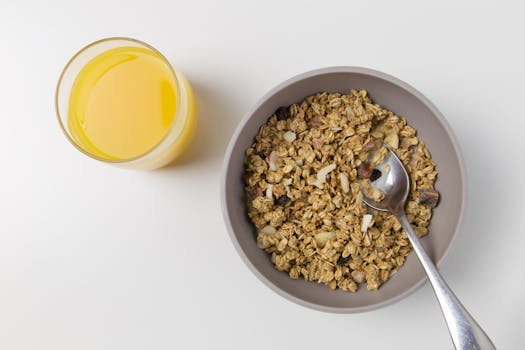The Crucial Role of Dietary Fiber in Preventing Colon Cancer
Colon cancer, one of the most prevalent forms of cancer worldwide, poses a significant health risk. According to the World Health Organization, it is the third most common cancer, with over 1.9 million new cases reported in 2020 alone. While various factors contribute to the development of colon cancer, recent research highlights the critical role of dietary fiber in its prevention. This article delves into the mechanisms by which dietary fiber can reduce the risk of colon cancer, supported by scientific studies and statistics.
Understanding Dietary Fiber
Dietary fiber is a type of carbohydrate that the body cannot digest. It is primarily found in plant-based foods and is classified into two categories: soluble and insoluble fiber. Both types play essential roles in maintaining digestive health and overall well-being.
- Soluble Fiber: This type dissolves in water and forms a gel-like substance in the gut. It can help lower blood cholesterol and glucose levels. Foods rich in soluble fiber include oats, beans, lentils, apples, and citrus fruits.
- Insoluble Fiber: This type does not dissolve in water and adds bulk to the stool, promoting regular bowel movements. It is found in whole grains, nuts, seeds, and the skins of fruits and vegetables.
The Link Between Dietary Fiber and Colon Cancer
Numerous studies have established a strong correlation between high fiber intake and a reduced risk of colon cancer. The mechanisms through which fiber exerts its protective effects include:
- Improved Bowel Regularity: Insoluble fiber increases stool bulk and frequency, reducing the time that potential carcinogens are in contact with the intestinal lining.
- Fermentation and Short-Chain Fatty Acids (SCFAs): Soluble fiber is fermented by gut bacteria, producing SCFAs like butyrate, which have anti-inflammatory properties and promote healthy cell function in the colon.
- Reduced Inflammation: A high-fiber diet can lower levels of inflammation in the gut, which is a known risk factor for cancer development.
- Weight Management: Fiber-rich foods are often lower in calories and can help maintain a healthy weight, further reducing the risk of colon cancer.
Scientific Evidence Supporting Fiber’s Role
Several large-scale studies have reinforced the importance of dietary fiber in colon cancer prevention. For instance, a meta-analysis published in the journal “Gut” in 2011 reviewed data from 25 studies and found that each additional 10 grams of fiber consumed daily was associated with a 10% reduction in the risk of colon cancer.
Another significant study conducted by the American Cancer Society followed over 150,000 participants for more than 26 years. The results indicated that individuals with the highest fiber intake had a 25% lower risk of developing colon cancer compared to those with the lowest intake.
Practical Tips for Increasing Fiber Intake
Incorporating more fiber into your diet can be simple and enjoyable. Here are some practical tips:
- Start Your Day with Whole Grains: Choose whole-grain cereals or oatmeal instead of refined grains.
- Snack on Fruits and Vegetables: Keep fresh fruits and vegetables on hand for quick snacks.
- Include Legumes: Add beans, lentils, or chickpeas to salads, soups, and stews.
- Opt for Whole Grains: Choose whole-grain bread, pasta, and rice over their white counterparts.
Conclusion
Dietary fiber plays a crucial role in preventing colon cancer through various mechanisms, including improved bowel regularity, fermentation into beneficial SCFAs, reduced inflammation, and aiding in weight management. The evidence supporting the protective effects of fiber is compelling, with numerous studies indicating a significant reduction in colon cancer risk associated with higher fiber intake. By making simple dietary changes to increase fiber consumption, individuals can take proactive steps toward reducing their risk of colon cancer and enhancing their overall health. Embracing a fiber-rich diet is not just a preventive measure; it is a pathway to a healthier lifestyle.
